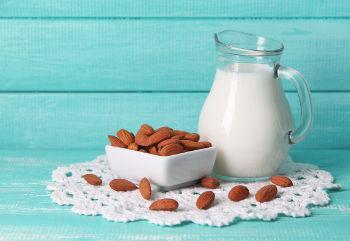 We all wish to have strong bones required to lead an active life, but exercising is probably the hardest thing to do. The mantra often is to cut extra calories to the bone and stock your kitchen with some bone-friendly food. This article aims at making you your own dietician so that you can calculate for yourself what food and how much of it your body needs.
We all wish to have strong bones required to lead an active life, but exercising is probably the hardest thing to do. The mantra often is to cut extra calories to the bone and stock your kitchen with some bone-friendly food. This article aims at making you your own dietician so that you can calculate for yourself what food and how much of it your body needs.
First, it’s important to consume an adequate amount of nutrients for strong bones. As recommended by the United States Food and Drug Administration (FDA), the daily requirement of calcium for an adult is 1000mg/day and that of vitamin D is 600IU/day. [1] While calcium can be derived from various foods, vitamin D is synthesized by the skin with the help of sunlight. An exposure to sunlight for 5 – 30 minutes from 10a.m. to 5p.m. twice a week can provide enough vitamin D for healthy bones.
The top 5 foods for healthy bones have been listed below,
1. Dairy products
Milk – Easily available in every corner of the world, this wonder food is packed with nutrients. 1 cup or 8 ounces of milk contain 305mg of calcium. So, people who can drink 3 glasses of milk a day can keep broken bones far away. Those who dislike milk can turn it into a fruit smoothie, or opt for yogurt and cheese instead.
Cheese – Fill in your burger, sandwich, salad, pasta with some cheese and get your pack of calcium. 2 slices of cheddar cheese contain around 300mg of calcium or take 1.5 ounces of any cheese you like and get 307mg of calcium. All this at the cost of 226 calories so watch out!
Yogurt – The recommended daily intake of one and a half cup of yogurt contains a rich amount of 400mg of calcium. The yogurt available now-a-days is fortified with calcium and vitamin D. Delightful flavored fruit yogurts are available to cater to every taste.
2. Fish
Sardines – These tiny, tasty fish provide you with 44% of the daily need of vitamin D and 35% of calcium. A small tin of sardines supplies 450 mg of calcium and 6oz contains 600IU of vitamin D.
Salmon – A favorite of many, this fish can be eaten with bread, vegetables, rice or in any form your taste buds desire. It generously provides 240IU of vitamin D in 1 ounce and 70mg of calcium in a small tin. [2]
Tuna – There are innumerable ways in which this fish can be savored alongwith salads, dry fruits and dressings. With every 3oz of canned tuna you can get 300IU of vitamin D and around 10mg of calcium.
Now, the good news is that even if you gorge on these fish, it won’t be a weighty issue. Fish is a low calorie food!
3. Edamame
Edamame is a preparation of immature soybeans in the pod usually eaten in countries like China, Japan, and Taiwan. These soybean pods are simply boiled or steamed and eaten with salt. It may sound boring, but mind you they are really tasty. Though in most parts of America edamame are available frozen, with increasing demand many farmers have started to produce it. 1 cup or 8oz of these soybean pods contain a generous amount of around 500mg of calcium.
4. Green leafy vegetables
Vegetarians can rejoice as these healthy vegetables not only provide a good amount of calcium, but are also packed with many other vitamins and minerals. Leafy greens that are particularly healthy for bones are kale, spinach, cabbage, and broccoli. 1 cup of spinach contains around 250mg of calcium and half a cup of cooked Chinese cabbage contains 65mg of calcium. These vegetables also possess cancer-preventive properties.
5. Calcium fortified foods
Start your day with the calcium fortified cereals. The cereals available in the stores now come fortified with calcium, vitamin D and various other nutrients. They are low in fat and calories too. The other calcium fortified foods are orange juice and milk. A cup of these cereals with 1 cup of milk will replenish your body with half of the required amount, around 600mg of calcium and vitamin D. So now lazybones too can get a healthy start to their day!
Contributed by Dr. Rachita Narsaria, MD
References:
2. An Evaluation of the Vitamin D3 Content in Fish: Is the Vitamin D Content Adequate to Satisfy the Dietary Requirement for Vitamin D?Z. Lu, T.C. Chen, A. Zhang, K.S. Persons, N. Kohn, R. Berkowitz,* S. Martinello,* and M.F. Holick
Related Posts
Cigarettes May Inhibit Inflammation Treatments
Axial spondyloarthritis, also known as AxSpa, is a chronic…






